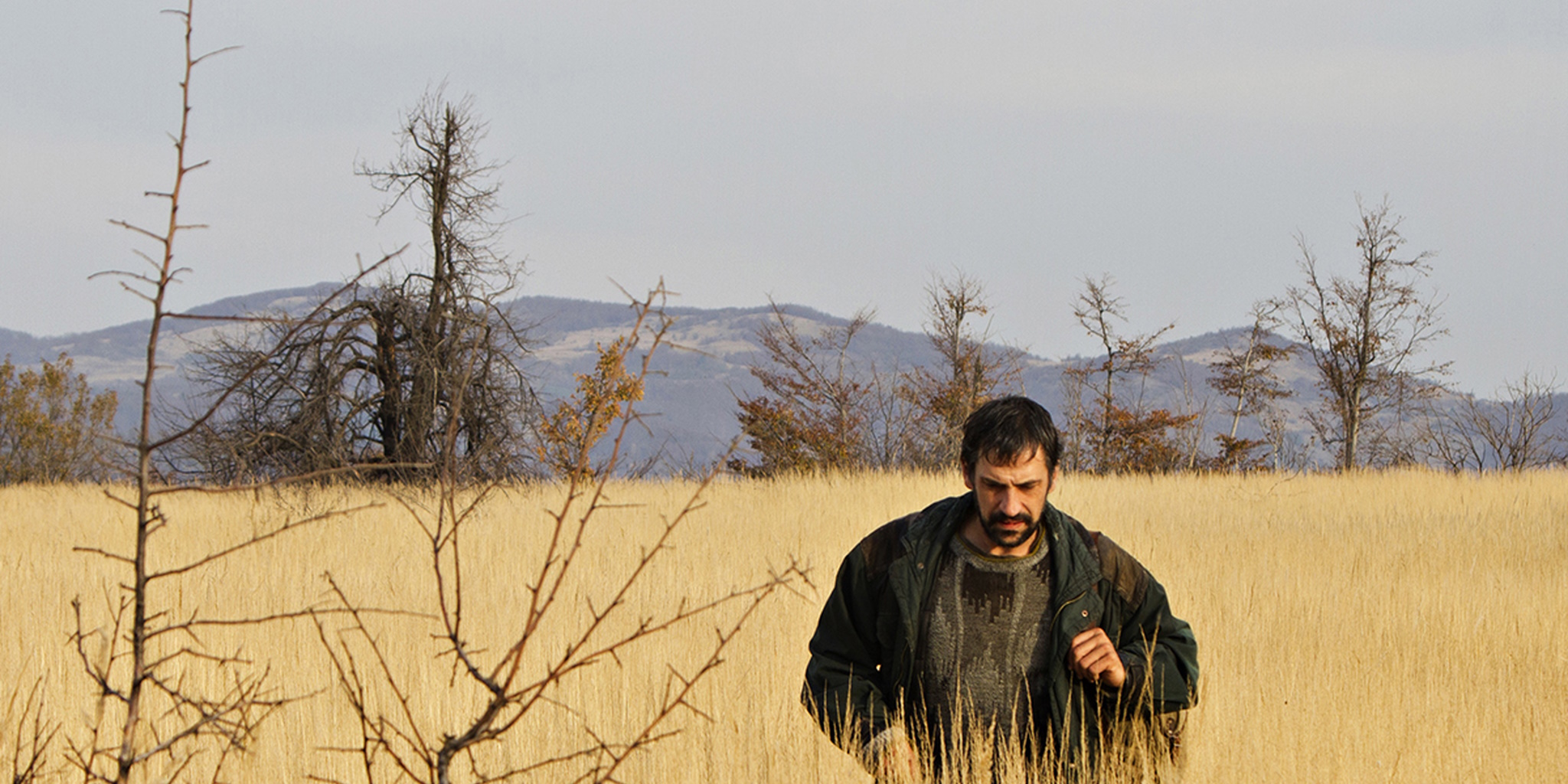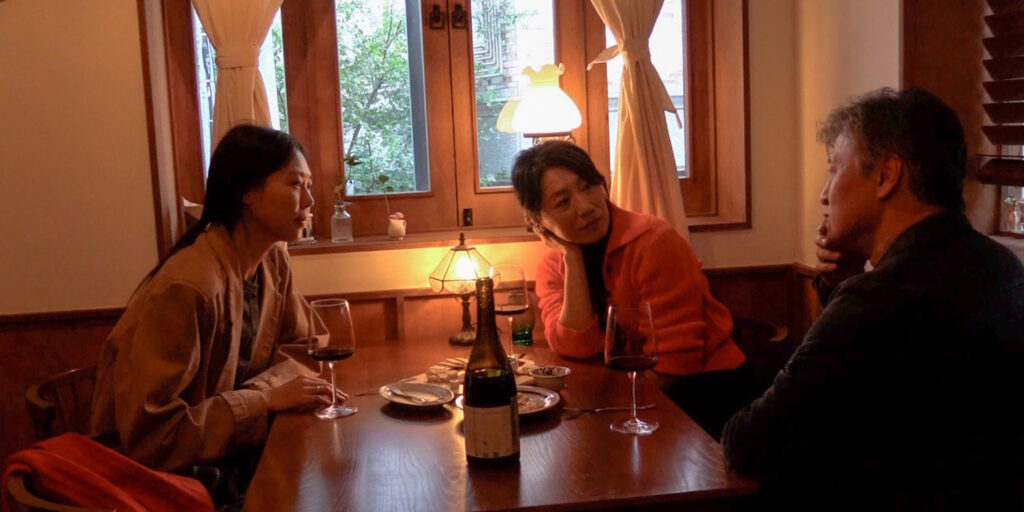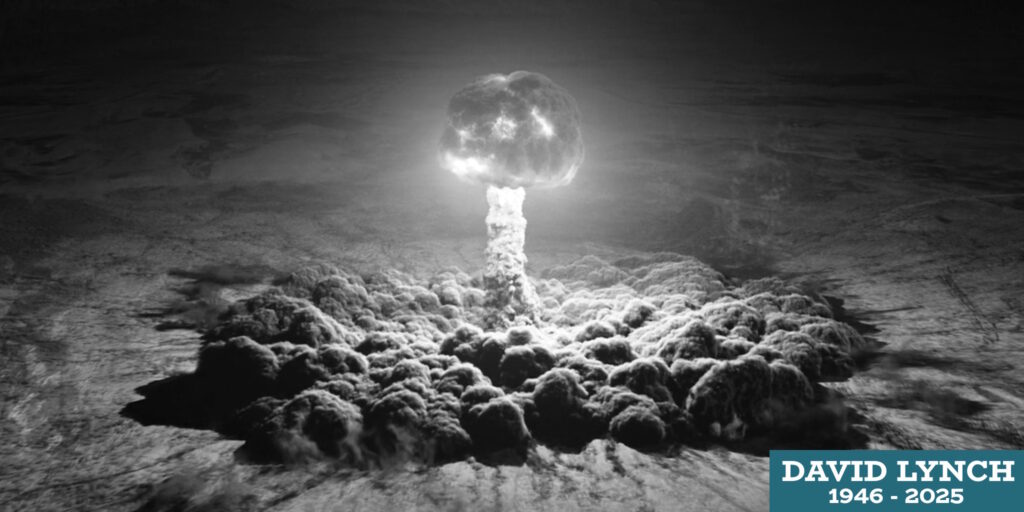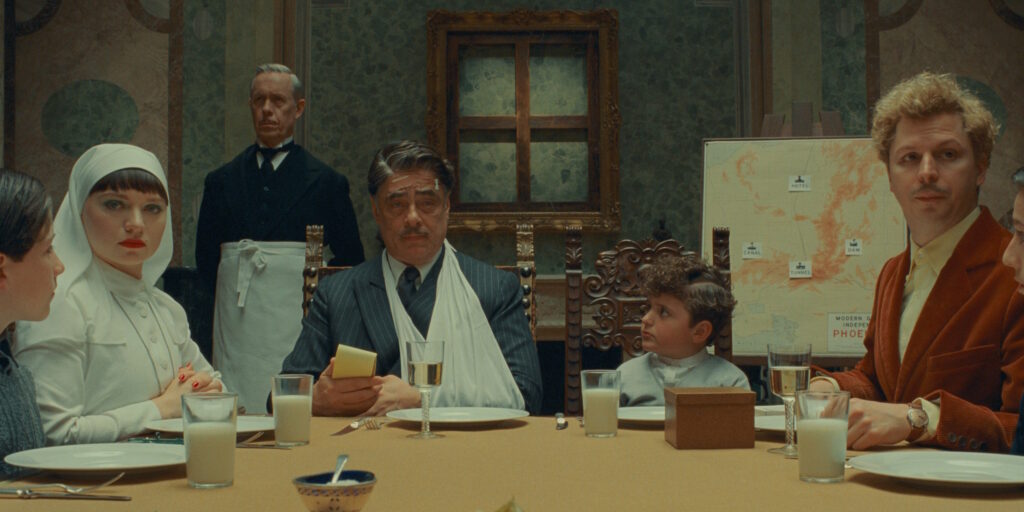[Originally published at Cinema St. Louis’ The Lens.]
Tightly clutching the hand of her young daughter, a woman named Biljana (Nada Sargin) strides-sprints down the road of her rural Serbian village, her adolescent son trailing sullenly behind her. Pulsating with the determination of a furious mother and the hollow-eyed desperation of someone with nothing to lose, she barges through the front gates of a small construction company. Biljana insists that the owners provide her husband with the back pay and severance he has been owed for almost two years, and – lacking any other cards to play – backs up her demand with a truly horrific threat.
As shocking as this opening scene ultimately proves to be, it’s only the spark that ignites a chain reaction of ruinous events for her husband, Nikola (Fargo Season 3’s Goran Bogdan). Currently working as a day laborer in the outlying forest, he proves difficult to contact in the aftermath of Biljana’s ghastly act of protest. Consequently, by the time word of the incident reaches him, his wife has been admitted to a psychiatric hospital and his children have been placed in foster care by the Center for Social Work (CSW), Serbia’s national welfare agency. Wringing his hands in his lap, Nikola listens in dazed disbelief as a succession of doctors and functionaries sketch the parameters of his new reality.
Given Biljana’s current situation, Nikola is now his children’s sole caretaker. However, in the estimation of the humorless local CSW official, Vailjevic (Boris Isakovic), he is not up to the task. He needs steady, full-time employment to provide for his children. But where does one find work in the backwater villages of a nation still reeling from aftershocks of the Great Recession? The family’s crumbling little house needs heat, electricity, and running water. But how does one maintain such amenities without employment? The cruel perversity of this financial Catch-22 doesn’t even seem to register to the child-welfare inspectors who poke around Nikola’s house, disapprovingly jotting notes about the paltry selection of clothing and toys. (One inspector sniffily editorializes, apparently without irony, “Children should also have a computer. It’s the 21st century.”)
Despite Nikola’s best efforts to make the house presentable, the CSW quickly rules that his children must remain in foster care indefinitely. Nikola briefly contemplates staging a sit-in hunger strike at the agency’s office to compel them to reverse their decision. However, a security guard takes pity on Nikola and gives him a reality check: Despite his coldly indifferent bureaucrat demeanor, Vailjevic is thoroughly corrupt. He shuffles foster children off to families in his home village and skims a percentage of their monthly support checks, relying on his cronies in the police and courts to shield him. Nikola has only one option: Submit an appeal in writing to the CSW headquarters in Belgrade. Of course, he has no car and no money, so a hail-Mary plan takes shape: He will walk the 300 kilometers to the capital and hand his appeal to the agency’s minister in person.
Writer-director Srdan Gulubovic claims that Father was partly inspired by his conversations with a man camped on the sidewalk outside a government ministry in Belgrade, reportedly to protest the removal of his children. Unsurprisingly, the film is suffused with a kind of awed respect for Nikola’s monomaniacal determination, for his willingness to put himself through a grueling test of physical and psychological endurance to be reunited with his family. However, Father rarely feels like fodder for cheap inspiration or miserabilist gawking. Echoing his forebears in the Yugoslav Black Wave of the 1960s and ’70s, Gulubovic’s depiction of his native country is full of subtleties and contradictions, its social order complicated (often ridiculously) by the harsh realities of globalization. In one scene, a friendly acquaintance gives Nikola a brief ride in his cargo truck, expressing solidarity with his cause. Of course, the back of the man’s vehicle is packed with undocumented refugees, who he cheerfully strands in the middle of nowhere after pocketing his smuggling fee.
During his journey, Nikola is antagonized by indifferent police, threatened by silk-shirted gangsters, and accosted by opportunistic thieves. However, he is also the beneficiary of random acts of kindness from unexpected quarters. There’s the convenience-store clerk who lets him crash in a janitor’s closet, the devoutly religious trucker who gives him a lift, and the nameless couple who place a hot meal in his hands, which he devours in between grateful sobs. Gulubovic is also engrossed with the tangible details of his protagonist’s journey: the rationed bread and the delaying rain, the bloody blisters and the knapsack pillow. The film doesn’t so much follow Nikola as peek in on him as he passes from one landscape to the next: farms changing into woodlands, woodlands into villages, and villages back to farms. At one point, he walks headlong into a literal pack of wolves, a surreal encounter that reveals the understated influence of Wim Wenders and Werner Herzog on Gulubovic’s storytelling.
That said, British filmmaker Ken Loach is probably the filmmaker that Father will first recall for most English-language viewers. Gulubovic’s feature reveals a similar sensitivity to the insidious flytrap of poverty and a commitment to the unblinking portrayal of its everyday, grinding anguish. At times this ruthlessly grim and grounded approach flirts with bleakness for the sake of bleakness. (Yes, there is a dog in the film, and, yes, the dog dies.) However, Father’s distinctly Eastern European viewpoint is evident in the faint scent of dark, Kafkaesque absurdity that clings to Nikola’s tribulations. The film leavens its admiration for its protagonist’s fortitude with skepticism, slyly portraying the ways that inspirational stories are compulsively commodified by the media and politicians. In a nation where the lingering legacies of Communist authoritarianism and brutal ethnic warfare are visible on every other wall, Father insists that a studied cynicism is invaluable – especially when it comes to the odds of one man enacting positive change, even for himself.
Given its plodding pace and acutely despondent tone, Father would not be as compelling were it not blessed with a powerful lead performance. Fortunately, Bogdan is up to the task, bestowing every scene with a moist-eyed, righteous intensity that never veers into saintliness. Looking like the haggard love child of Gerard Butler and Robin Williams’ buddy from Moscow on the Hudson (1984), Nikola trudges through the world with the slump-shouldered resolve of a man whose future doesn’t extend much further than the next day, the next kilometer, or the next step. He just needs to keep moving, or he might lose sight of the twin polestars that are his son and daughter. On some level, he seems to understand that his quest is a quixotic one and that his willingness to imperil and humiliate himself means nothing to a cold, faceless system where – in the words of one CSW official – the poor have no right to have children. In the end, however, Nikola’s journey may be one of essence, rather than effect. What is a good father, if not a man who would walk to hell and back for his kids?
Father screens nightly at 7:30 p.m. from April 29 – May 1 at the Webster University Film Series.




